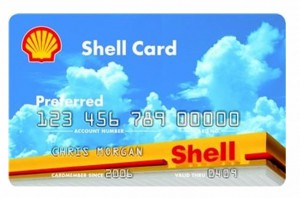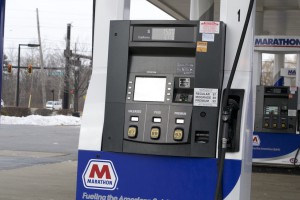
Gas station credit cards may offer some appealing perks, but often those are offset by higher interest rates and other problems.
Everyone’s looking for a good deal these days, especially on credit cards. So many cards offer a variety of bonuses, incentives and other enticements to get folks to sign up.
Some cards are better than others, and often gas station credit cards seem like they would be part of that “yes, please!” group of cards to sign up for, but a closer examination by CreditCards.com suggests that gas station cards are actually among the worst.
First and foremost are the interest rates. These cards “offer” interest rates that average 23.61%. That rate is close to what starter credit cards or cards for those with poor credit scores are offered, usually 29.99%.
It’s also 7% higher than the national average for all credit cards, according to the website, which examined 28 widely available gas station credit cards.
(Gas prices on the rise as summer driving season nears. Click Here for the story.)
The gas station credit cards in this survey offer per-gallon discounts averaging $0.05 per gallon. If you consider that the national average for a gallon of gas is $2.66, according to AAA, then $0.05 per gallon is just under a 2% return.
If you live in a state where gas costs more, the numbers are even worse. In California, the survey noted, the average price per gallon of gas is $3.52. So a 5-cent-per-gallon discount comes out to a less than 1.5% return.
This is where general purpose credit cards provide a better deal than gas cards, in fact, many offer 2% rebates on gas and other purchases. CreditCards.com says those cards will also charge lower interest rates and they may offer other perks like sign-up bonuses.
(Fuel economy of new vehicles continues to drop. To find out why, Click Here.)
A few other things to know about gas station cards:
- You don’t want to carry a balance. The average APR for the cards surveyed is 23.61%, which is well above the national average for general purpose cards of 16.62%, but nine of the cards in the survey had APRs of 28.24%.
- Most are only good at one kind of gas station. Only 11 cards were co-branded with payment networks such as Visa and Mastercard, meaning they can be used almost anywhere. Gas cards that are not co-branded can only be used at their respective stations.
Gas station cards, however, can be a good deal in one situation, according to the folks at CreditCards.com. Twelve of the 28 cards analyzed offer an introductory perk usually 25 cents off per gallon for two or three months.
“If you’re planning a big road trip, this is one instance when it might make sense to sign up for a gas rewards credit card,” said Matt Schulz, CreditCards.com senior industry analyst. “But even then, there are restrictions to be aware of — several of the most generous introductory offers are capped around $100 of fuel credits. You’re probably still better off with a general cash-back card.”
General-purpose cards are also much more likely to offer lucrative sign-up bonuses.
For example, the Capital One Venture Rewards card gives new cardholders 50,000 miles (worth $500 in travel) after they spend $3,000 within 3 months of opening the account. Cardholders receive two miles for every dollar they spend (essentially a 2% return) and there is no annual fee for the first year.
(New study shows best and worst places to drive in the U.S. Click Here for the story.)
Citi Double Cash is another popular general-purpose card that offers 2% cash back on all purchases (although it doesn’t have a sign-up bonus). And the American Express Blue Cash Everyday card gives 2% back on gas with a $200 sign-up bonus. In short, in most instances, get a general purpose card unless the deal offered it to overwhelming to ignore.


Where does Gas Buddy cards fit in this?